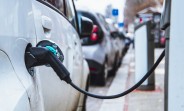No, your 800V Hyundai or Kia doesn't charge at 350kW
800V car architectures are great - they tackle arguably the biggest issue EVs face by enabling faster charging without sacrificing battery longevity. But Hyundai, being unsatisfied with the advantage it already has, is consistently trying to overplay their advantage through the use of clever if rather unethical marketing trick.
What is charging speed anyway?
Before we start any charging discussion we have to point out that no car charges at its advertised maximum charging speed all the time. Most of them will only go full speed only when the battery is almost completely discharged and then stay there for the first 20% or so. And that only if the temperature of the battery and charger are optimal.
So when you read that a car supports 200kW DC charging you can’t expect to fill its 100kWh battery in 30 minutes from flat. In most cases the average speed will be half that so a full charge will take over an hour.
So everybody is doing it then, what’s the problem?
Well, not quite. While a car won’t sustain the maximum charging speed for a long time it’s still able to reach it. And in fact it will deliver it to you when you need it the most - at lower battery charge levels, when you need to quickly top up before proceeding.

The Hyundai and Kia EVs, on the other hand will never reach 350kW - not even for a second. In fact they won’t even get close to that, peaking at just under 250kW, quite far from the number the company would like to imply they support.
Are they lying to us?
Of course not - a company of this size knows better than to publish outright false claims. Instead it went with the workaround of listing the charger’s specifications rather than car’s. So when you visit Hyundai or Kia’s website you’ll find charging times for “DC Fast Charge 50kW” and “DC Fast Charge 350kW”.
So while not technically wrong, those specific speeds listed strongly imply that the car can gulp all the electricity available if you hook it up to a 350kW charger. The truth of the matter is the number wouldn’t change if you used a 250kW charger instead and we can’t believe a large team of very smart Korean engineers doesn’t know that.
The way the company phrases things is different from literally every other maker out there, which further suggests it is misleading on purpose. So while not outright lying Hyundai is just giving you an invented number and letting the press and potential owners do the lying for them.

A number of reviewers have fallen for it since verifying peak charging speed is a rather hard feat to pull off. And even owner forums are filled with people convinced they can achieve 350kW speeds if only those pesky charging networks weren’t sabotaging them for one reason or another.
So 800V architecture is not any better than 400V then?
It actually is. Circling back to the start of the article and the difference between peak and average charging speed - the 800V cars are able to sustain their peak or close to peak rates for much longer - sometimes even beyond 50% SoC. This means the total charging time for the most common 10-80% charge is significantly shorter than 400V rivals, even if peak speeds aren’t that different.
If you want to get some real life numbers you might want to check our battery charging tool, which gives you the exact charging time for hundreds of different cars, chargers and charging percentages. It’s really invaluable when planning your next trip.
Reader comments
- NiteRiderEVO
- I4U
i have to counter-FUD-bust a bit, battery tech hasn't really significantly changed vs late 90's~early 2k's. yes, we learned how to make improvements and all, but the basics of how a li-ion/li-poly battery works have not exactly changed...
- smithjmma
- bu@
I recently came across AllMachines and found it to be an excellent resource for exploring various types of machinery. The information provided in their Loaders section is comprehensive and quite user-friendly. I also explored their Excavators page, w...





Facebook
Twitter
Instagram
RSS
Settings
Log in I forgot my password Sign up